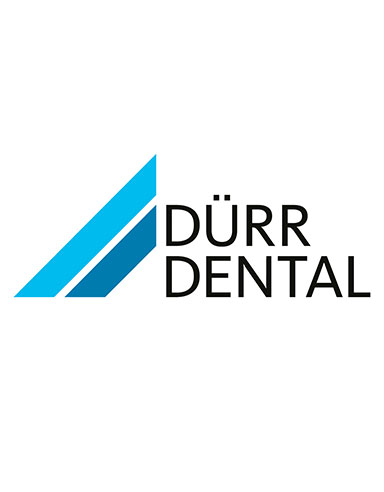About 20 years ago the rule of the white minority over the black majority ended in South Africa. Since the first free elections in April 1994, South African governments have been trying to improve health care in the country. In 1996 the government of Nelson Mandela introduced free basic medical care for all South Africans. Yet there are still extreme differences in medical care.
The well-to-do are privately insured, and their health care is comparable to the European standard. But the services of the government-provided base insurance are at the level of a developing country. In fact, there has even been a downward trend in the quality of governmentprovided health care in South Africa in recent years. Public hospitals are lacking modern equipment and especially personnel. Many doctors prefer to work at private clinics or abroad, since public clinics do not pay well and imply difficult general conditions.
The situation is similar in the area of dentistry. According to the , there are more than 3,500 dentists in South Africa, and about 1,200 students are enrolled in dentistry studies. But it is the affluent and insured city dwellers who make use of dental services. In rural areas areas, 80 percent of children have never visited a dentist in their lives. Nine of ten South African children in these regions have caries, and many suffer toothaches that are not treated. The believes that over 90 percent of adults in South Africa suffer from cavities and periodontal ailments. Oral hygiene and the effects of oral diseases are issues that find little resonance in South Africa.
Simple resources for big effects
Initiatives such as the mobile dental-hygiene clinic, brainchild of the » consulting firm Square Carrot in Johannesburg, are encouraging. A specially fitted mid-size lorry serves as treatment room. The mobile clinic visits schools and rural, isolated regions of South Africa. The goal is to raise awareness of oral health, specifically among poorer people. But concrete help is also provided. The specialists remove soft and hard deposits from teeth and treat inflamed gums of the patients who come to the mobile dental-hygiene clinic. They also show patients how to go about good dental hygiene and the benefits of preventive dental care, including demonstrating correct use of toothbrush and dental floss. People of all ages receive treatment. Upon leaving the mobile dental clinic gives out toothpaste, tooth brushes and dental floss to the children.
Square Carrot founder Ignis Borstlap is convinced of his company’s involvement, because a lot can be accomplished with simple resources. “Many of the children we come across in our mobile clinic visits do not have their own toothbrush. Family members share one, sometimes up to five persons in the same household use a single toothbrush.” This makes dental problems inevitable. To make matters worse, there is a correlation between dental problems and physical and mental development. “The children have aches and cannot eat properly. How are they going to concentrate at school?”, asks Borstlap. About 100 more enterprises are now supporting the Square Carrot initiative.
The sector sees growth potential
Despite the difficult situation in the health-care market, many European and German companies are involved in the health-care sector in South Africa. Among dental-industry companies that have pegged South Africa as a market with great growth potential is Dürr Dental AG from Bietigheim-Bissingen, Germany. The South African market is familiar with products from the business areas of equipment, diagnostic systems and hygiene, thanks to local dealers who have distributed products to dental surgeries in close cooperation with the Dürr Dental export department.
Since July 2014 a Dürr Dental employee is, for the first time, active on the African continent. Xané Brink is manager for South and East Africa and tasked with representing the innovative company in Africa. Her office lies in the city of Somerset West in the Western Cape region, a good 30-minute drive from Capetown.
“To me it is important to build and cultivate the trust that dentists have shown all these years in our products and service“, is how Brink defines her primary task. She meets with Dürr Dental product dealers in order to gain an understanding of their strategies, goals and challenges. “The markets in South and eastern Africa are really fascinating. I meet lots of people from different cultures and enjoy the lively discussions I have with them”, says Brink.
When she’s looking to unwind, she likes to get on her mountain- or road bike. “In Western Cape, the region where I live, their are fantastic trails winding through picturesque landscapes and along the coast”, gushes Xané Brink. Even though there are many challenges that the country still needs to tackle, it must never lose sight of the “most beautiful place on Earth”.
“More preventive care is of utmost importance”
Dr. Johan Borman works as a dentist in Somerset West, in the province of Western Cape in South Africa. He runs his own surgery and has one employee.
Dr. Borman, please describe a ‘typical day’ as a dentist in South Africa.
I get to work at 7:30 every morning. First I respond to emails and take care of some administrative tasks. Then I discuss the plans for the day with my assistant. Patients start arriving at about 8:00. With a bit of luck and if nothing comes up, we can knock off for lunch from 1:00-2:00. The last patient usually leaves about 5:00, and I generally leave the surgery at 5:30, after doing a few more administrative things.
Which are the typical problems that patients come to you with?
My surgery focuses on issues of the middle and upper class. My patients often come to me with specific tooth aches. Orthodontic treatment and implant surgery are also typical, and my patients have aesthetic treatments done as well.
Where does preventive care rank in South Africa?
Not yet very high. I think that more information and raised awareness of prevention are of utmost importance. From a medical standpoint preventive treatment makes more sense, of course, than tackling the problem after it is too late.
Dr. Borman, thank you very much for your time.

